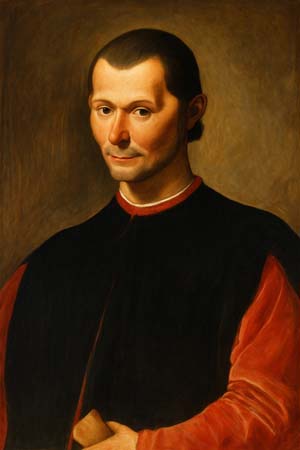— Niccolò Machiavelli
 Born on this day, Italian philosopher Niccolò Machiavelli (1469–1527) is best known for his groundbreaking political treatise, The Prince (1513), a candid guide on how to rule a nation.
Born on this day, Italian philosopher Niccolò Machiavelli (1469–1527) is best known for his groundbreaking political treatise, The Prince (1513), a candid guide on how to rule a nation.
His sharp and pragmatic insights on power and control earned him a controversial reputation. The infamous "end justifies the means" philosophy inspired leaders from Napoleon to Hitler to Kissinger.
"It is much safer for a prince to be feared than loved," he famously advised.
After the fall of Florence's republican government, Machiavelli, once a minister, was forced from office. In exile, he penned his work as advice for the new ruler, Lorenzo de' Medici, offering strategy forged from experience and observation.
His thinking clashed with medieval ideals that placed politics within the realm of morality and religion. Instead, Machiavelli chose realism. He studied the dark and complicated truths of human nature and urged leaders to act according to necessity, not virtue.
Condemned by Pope Clement VIII, The Prince shocked contemporaries. But beneath the ruthless surface was a deeper patriotism. "To advise a great prince who will correct the horrible social ills... and rebuild us into the conquering force we once were," he wrote.
His bold voice endures. As Francis Bacon later acknowledged, "We are much beholden to Machiavelli... that write what men do, and not what they ought to do."
 Even in chaos, vision finds a way forward.🌟
Even in chaos, vision finds a way forward.🌟
